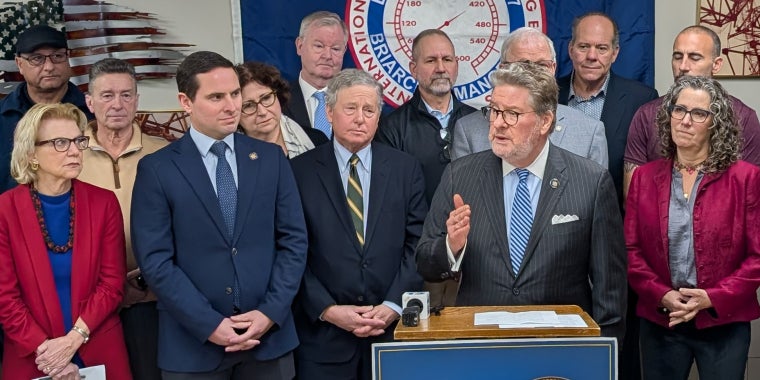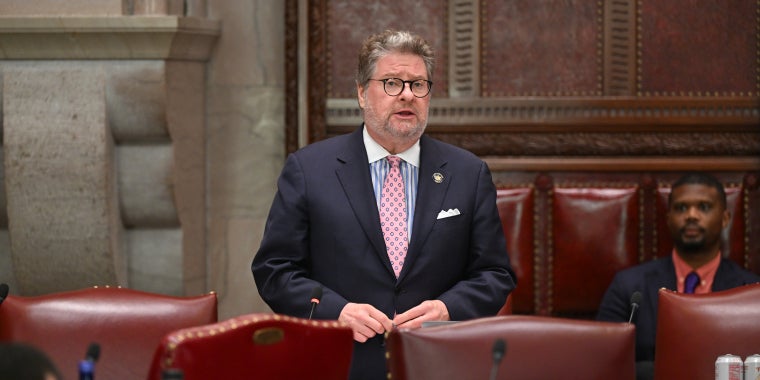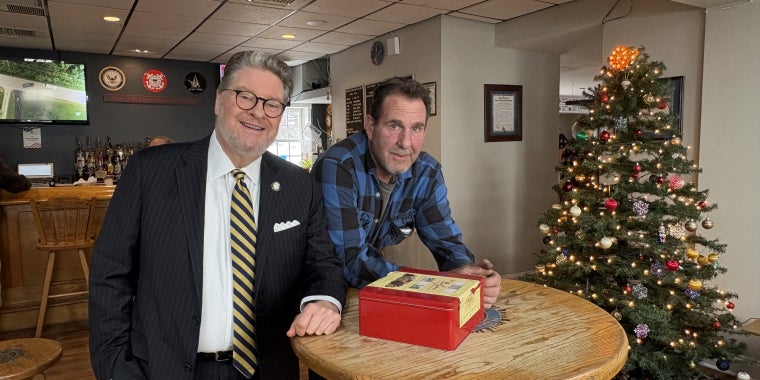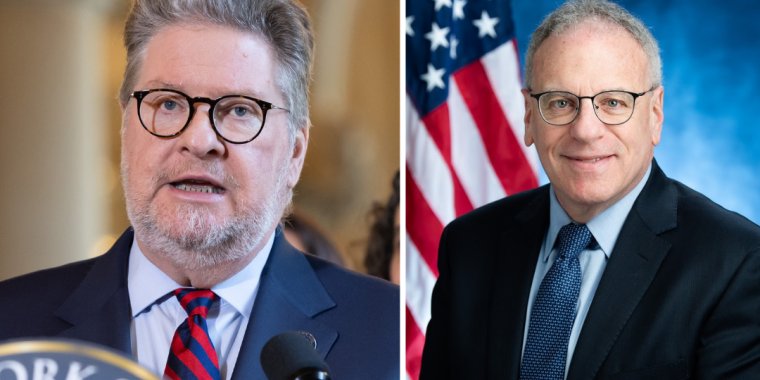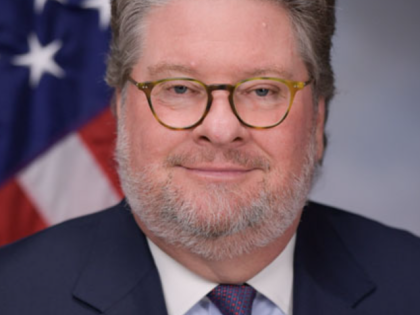
Harckham Hosts Forum with Students in Brewster on “Hate in the Age of Multiculturalism”
February 16, 2024
-
ISSUE:
- Senator Harckham. SD40
- Combating Hate Speech
- Fighting Racism
- Student Voices
- Cultural Diversity. Education

State Sen. Pete Harckham with students at the “Hate in Age of Multiculturalism” forum in Brewster
Brewster, NY – New York State Senator Pete Harckham hosted a special forum last night titled “Hate in the Age of Multiculturalism,” which featured comments and insights from a dozen high students from around the region regarding racism, hate language, bullying, the effects of social media—and ideas on how to bring people together. The hour-and-a-half long event took place at the First United Methodist Church of Brewster at the invitation of its pastor, Rev. Elaine Pope-Joffrion.
“The rise of hate and intolerance in our communities has increased in recent years, and it is crucial that we, as a society, acknowledge and understand this systemic problem while finding ways to address it,” said Harckham. “This forum was meant to provide a safe space for these students to express themselves and share their experiences, and I am so grateful for the remarkable observations and feelings they imparted to us. It is truly heartbreaking to realize how pervasive racism and hate speech is in our schools and communities.”
This was the sixth “Hate in the Age of Multiculturalism” forum that Harckham has hosted since taking office in the State Senate five years ago. The dozen students represented nine different schools: Brewster High School, Croton-Harmon High School, Horace Greeley High School in Chappaqua, John Jay High School in Cross River, John F. Kennedy Preparatory School in Somers, The Masters School in Dobbs Ferry, New Rochelle High School, Ossining High School, and Somers High School.
About 20 parents and community members attended the forum. Rev. Pope-Joffrion, who was unable to attend the forum, participated via video conference on the internet.
Harckham first asked the students how racism, hate speech and intolerance had impacted them, their families and their communities. Immediately, students talked about how much this hateful behavior has become normalized. “People say things and know they shouldn’t,” said one student; “I was bullied, and it stuck with me,” admitted another student; “It’s so common—and if you complain, people say you’re making a big deal about nothing,” said another student.
“People joke about racism and hate language when it happens,” said one student, who added that a classmate drew a swastika on a homework assignment and everyone in the class laughed while the teacher simply ignored it.
The role of social media in racism and bigotry was addressed next, and the students were unanimous in their view that online sites only exacerbate the problem while granting offenders a certain anonymity. Again, this offensive behavior is shared and thought to be funny to many students, participants said. Some schools even have social media sites where students can make fun of each other, one student said, ignoring how much of it can be hurtful. “Social media reinforces the impression that hate language is acceptable, and even encourages people to bring hate into real life,” said one student.
A troubling takeaway from the forum was how often students spoke of how school administrators and teachers, as well as other adults, did not take up their complaints or concerns about incidents of hate language, racism and bullying. “Teachers hear comments all the time just walk by,” said one student; “My experience is that the teachers laugh about it, too,” said another student; “I think teachers have given up trying to stop it,” another student said. Some students said their schools would reprimand and suspend students for hate speech and racist actions, but no one felt any lessons had been learned with the punishments that were handed out.
“It’s just not the teachers who are ignoring this problem; it’s everyone working in our school district,” said one student. “I don’t think we can punish our way out of this,” said another student.
Toward the end of the forum, the students began to share experiences about different cultural appreciation events held at their schools; this was in response to a question from Harckham about how the students thought they could connect to each other and share interests in common values. While some students may not feel the need to connect to “others” when they are already connected to their friends, as one student explained, other students related how much they enjoyed learning about other students’ cultures or even aspects of their different heritages and ethnicities.
“There has to be a greater emphasis on encouraging students to learn from each other,” said one student; another said, “It should be about breaking down barriers. First educate; then enjoy.” “Seeing how many other cultures were represented at my school made me feel a lot better,” admitted another student.
Ronald Reid, co-founder of the Putnam County Community Engagement & Police Advisory Board (CEPAB), said, “I was proud to hear from all our student forum panelists who spoke so eloquently to the issues still happening in our schools. The topic of hate speech and how it has become rooted within our school systems was unanimous among the student panelists. Some were victims with personal experiences that were never addressed by schoolteachers, administrators, or the districts.”
Rev. Pope-Joffrion said, “The First United Methodist Church of Brewster was honored to host Senator Harckham’s youth panel discussion on such a crucial and pervasive issue. The young panelists were articulate, insightful and candid, and their shared experiences and opinions were riveting. I pray their voices will be heard and their experiences will lead to solutions, bringing forth commonalities across our diverse communities and multicultural groups, rather than disparities; because living together is not just about sharing space, it’s about embracing diversity and fostering a shared sense where all are made to feel they belong.”
